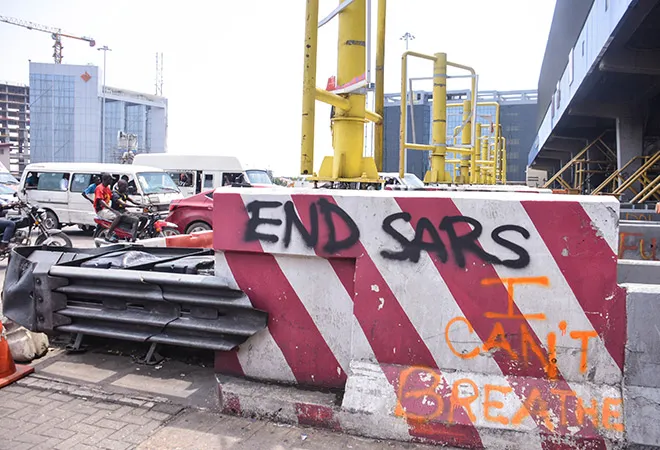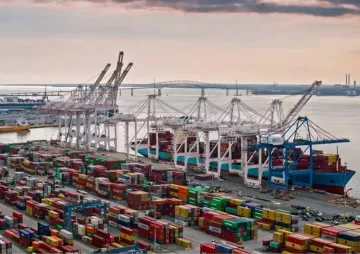
Popular protests in African countries go back to the days of independence struggle and in the struggle against the hardship associated with the structural adjustment programme in 1980s. In the 1990s, the democratic and political transition that swept most parts of Africa also occasioned many political protests and movements. Yet for decades, western misconception and negative media coverage tended to hinder an understanding of the particularities and commonalities of protests in Africa. In contemporary times, several examples of popular protests can be identified such as political uprising in Tunisia (2010), popular protests in Democratic Republic of Congo in the wake of its Presidential election (2018), and protests against former Algerian President Abdelaziz Bouteflika and former Sudanese President Omar al-Bashir to step down (2019). African people are increasingly interconnected and better informed than ever, and they are more ready to go onto the streets in defence of their rights. The collective agency of ordinary citizens is progressively shaping political culture and practices across the continent.
The latest example is the protest organized around #EndSARS movement in Nigeria from 8 October 2020, wherein thousands of young Nigerians have voiced their anger against the country’s governing elite and have called for widespread police reforms and government accountability. The protests grew organically from an online hashtag campaign to an offline in-the-street demonstration. Within a space of few weeks, Nigerian youths were successful in creating an ecosystem of self-supporting and sustainable protest against the Special Anti-Robbery Squad (SARS) of the Nigerian police.
In many ways, #EndSARS, involving a repudiation of the Nigerian police establishment, was waiting to happen. SARS was not only associated with brutality and excesses but also reflected a severe disconnect between the governing elite and the Nigerian youths. When a government consistently fails to deliver social security and economic empowerment, and to protect its citizens, consequent frustration and despair may lead to protests and even lead to an uprising.
Since independence in 1960, Nigeria has retained the same adversarial colonial security apparatus that tended to use police to subjugate local population and exact taxes. Even though human security issues have entered Nigeria’s political and policy discourse, it unfortunately has not translated into meaningful changes on the ground. As the question of policing and police oversight have always been neglected and pushed to the back burner for a long time, protests and political movements centred on these are bound to surface.
History of SARS
The SARS is a branch of the Nigerian police established in 1992 to combat violent crimes including armed robbery and kidnapping. It was one among many tactical units that were set up around that period. The SARS was touted to become a faceless and unarmed police unit, predominantly meant to gather intelligence, and help curb violent robberies. In each Nigerian state, SARS fell under the criminal investigations department of the police command. Although the unit was moderately successful in the beginning but this unarmed intelligence-led police model did not survive for long. Over the years, SARS operatives started to derail from their initial goal of providing intelligence to curb violent crimes and began to carry arms, conduct arbitrary stops, unduly profile people, and even extort money.
An Amnesty International report in September 2016 highlighted gross violations by SARS including torture and other forms of ill-treatment. The report alleged that SARS officers perpetrate acts of torture and other cruel, inhuman, or degrading treatment against detainees in their custody on a regular basis. SARS officers were also infamous for taking bribes, and rather than being held accountable, they were even getting promoted. Nigerians were not surprised by this report as they were familiar with the cycle of human rights violation, impunity, and corruption by SARS officers. Even in its latest report in June 2020, Amnesty International documented at least 82 cases of torture, ill-treatment, and extra-judicial execution by SARS between January 2017 – May 2020. The victims of the police unit have been predominantly male between the ages of 18 and 35, from low-income backgrounds and vulnerable groups.
Demand of #EndSARS
The build up to the #EndSARS may be summarised briefly. In recent years, there has been an increase in poverty in every region of the country, both rural and urban. Majority of Nigerians have low living standards. In addition, the outbreak of the COVID-19 pandemic, fall in global crude oil prices, increasing inflation, and months of strikes and closure of educational institutions have compounded to Nigeria’s economic hardship. Moreover, Nigeria’s unemployment and underemployment rate stood at a staggering 27.1 and 28.6 percent respectively. Such conditions have left young, unemployed Nigerians feel alienated, marginalized, and angry.
Protest against SARS’ brutality however was not new. Over the years, President Muhammadu Buhari’s administration has made numerous promises to disband or reform SARS, none of which ever materialized or resulted in real change. The #EndSARS movement dates to 2017, where Nigerian youths used the hashtag on social media to share their experience on the heavy-handed violence perpetrated by SARS.
The initial demands of the protestors were straightforward: disband SARS, hold the perpetrators of police brutality accountable, and reform the Nigerian police. Since then, protestors have broadened their demands to include better governance, respect of rule of law, and respect for human rights. At the heart of such demands lie a desire of young Nigerians to demand change and greater accountability from its leaders that has not served the country well.
The Lekki Toll Gate massacre
The protests took an unfortunate violent turn when the Nigerian Armed Forces began to indiscriminately fire at unarmed and peaceful #EndSARS protestors on the evening of 20th October at Lekki toll gate, in Lagos State. As per Amnesty International, at least 12 protestors were killed in “extrajudicial executions”. Data shared by other news agencies quote much higher number of casualties. In the following day, the Nigerian government ordered a country-wide curfew with the aim to effectively shut off the protests and disperse the gathering. The governor of Lagos first commiserated with the victims and then also maintained that there were no casualties from 20 October incident at Lekki tollgate. This contradicted the numerous live video footage shared on social media. The army’s response was even more incredulous as they refuted reports of their presence at the scene despite live footages indicating their presence and violent crackdown.
What lies ahead for #EndSARS
In the last few days, the street protests have largely subsided due to the violent military crackdown on protestors and numerous curfews adopted across several Nigerian states. Moreover, President Buhari in a national address has implicitly threatened another crackdown if more protests occur. Trust in authorities is at its lowest. The #EndSARS movement and the Lekki shootings have only entrenched citizens’ distrust in the institutions meant to protect them from the fear of violence. Although protests have waned for the time being, there remains a sense that the movement may flare up again as the young Nigerians realise the power of their agency and ability to organize and demand change.
Although President Buhari’s administration disbanded the SARS on 11 October following public outcry, a new police unit called Special Weapons and Tactics Team (SWAT) has been established to carry out the duties done by SARS. This is a worrying development because officers from the controversial police unit will be redeployed, although the details are unclear. It is also unclear whether officers will be prosecuted for past abuses. Despite repeated assurances from authorities to replace SARS with a better well-trained force that upholds human rights, Nigerians are finding it difficult to place faith on their government which has time and again, missed out on opportunities to carry out proper police reforms.
For now, the #EndSARS movement and its supporters are likely to focus their efforts on realising some of their core demands: investigate the Lekki tollgate shootings in an open and transparent manner and work to set up an independent office to investigate serious complaints against police. The protests are only a beginning and may pivot towards community-based, intelligence-driven policing in the future. Only time will tell what lies ahead for #EndSARS, but one thing is sure: the movement’s non-hierarchical leadership and its uniqueness may translate into a template for future social and political movements in Nigeria.
The views expressed above belong to the author(s). ORF research and analyses now available on Telegram! Click here to access our curated content — blogs, longforms and interviews.




 PREV
PREV


